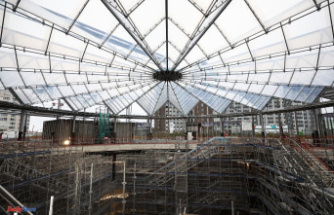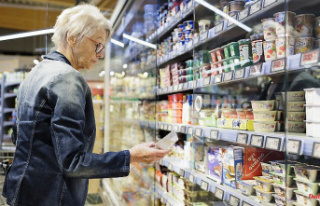The German economy shrank in the fourth quarter of 2022. According to the Federal Statistical Office, gross domestic product fell by 0.2 percent compared to the previous quarter. Experts do not anticipate a slight upward trend again until spring.
The German economy has one foot in the recession. The gross domestic product shrank from October to December by 0.2 percent compared to the previous quarter, as reported by the Federal Statistical Office. This was mainly due to falling consumer spending, which is suffering from high inflation. Interviewed economists had expected stagnation.
In the previous summer quarter it was still enough for a growth of 0.5 percent. This makes a recession more likely: Most experts expect Europe's largest economy to shrink again in the current first quarter. Economists only speak of a recession if there are two negative quarters in a row.
A slight upward trend is expected again from spring. "This country has managed to fend off a serious economic crisis," Economics Minister Robert Habeck said at the presentation of the federal government's annual economic report. "We now assume that the recession will be shorter and milder - if it happens at all."
The fact that the IFO business climate index, the most important leading indicator for the development of the German economy, has risen for the last four months in a row speaks for a mild recession. For 2023, the federal government expects slight growth of 0.2 percent, after having assumed a decline in gross domestic product of 0.4 percent last autumn. Last year, due to corona catch-up effects, there was still an increase of 1.8 (previous estimate: 1.9) percent, which was weaker than in 2021 with 2.6 percent due to the numerous burdens.
The economic risks remain high in the current year. "High energy prices, record inflation and a noticeable global slowdown in growth will accompany our companies throughout the year," said Martin Wansleben, General Manager of the German Chamber of Commerce and Industry (DIHK). "In addition, there are the long-term challenges from structural and climate change, demographic development and digitization."












